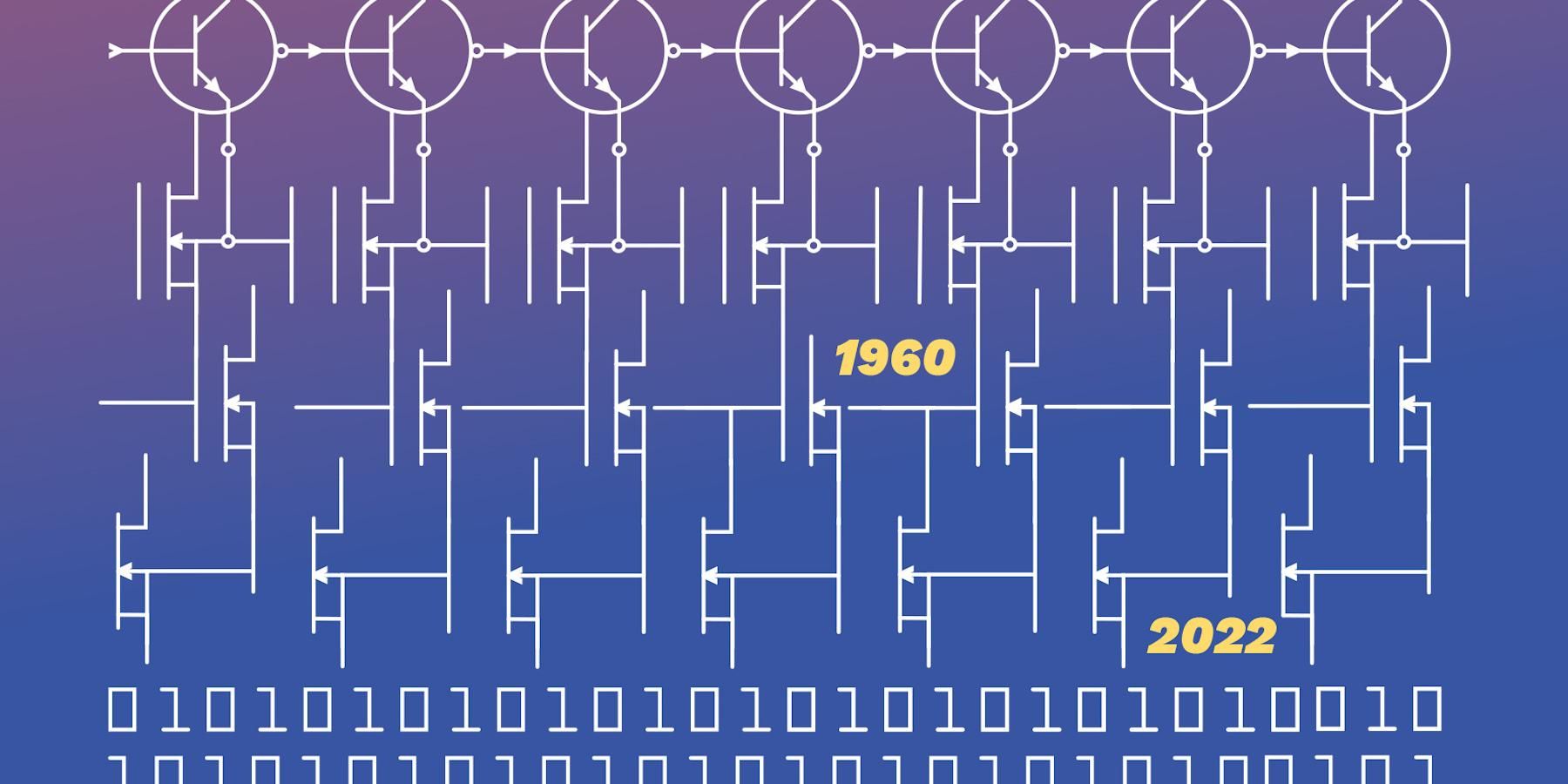The transistor turns 75 as Europe considers chip manufacturing to achieve more technological sovereignty
The transistor is a microelectronic component that is counted by the millions in computers, cell phones, rockets and washing machines. It is at the heart of the digital revolution, is fundamental to microelectronics and is key to understanding the current semiconductor crisis. The Institute of Microelectronics of Barcelona is celebrating it with an event on Tuesday, May 24 at the Institut d'Estudis Catalans in Barcelona. There will be a talk by its director, Luis Fonseca, on the causes of the crisis, and an informative lecture by Professor Ignacio Mártil.

The transistor is a semiconductor electronic device that, in its original conception, delivers as output signal the amplification of an input signal. Later, it was used as a digital switch, the embodiment of ones and zeros. Invented in 1947, it is responsible for the miniaturization of electronics into ever smaller devices, and around its evolution has developed possibly the most complex and most enabling industry in the history of human technology.
The Institute of Microelectronics of Barcelona (IMB-CNM, CSIC), the only center in Spain capable of manufacturing transistors in silicon, plans to celebrate the anniversary to give voice to this silent revolution, encourage debate around microelectronics and reflect on the microchip crisis.
"We cannot understand today's society without the transistor. Its technology is at the heart of advances in electronics and, therefore, of better computers and cell phones, but also in biomedicine, space research and LED lighting," says Luis Fonseca, director of the IMB-CNM-CSIC. "In the context of a global supply crisis, with stops in the production of many more products than we could ever have imagined, we believe it is important to stop and reflect on the role of microelectronics and spread knowledge about the transistor," he says about the series of conferences that will begin on Tuesday 24 at the IEC in Barcelona.
Global microchip supply crisis
"The chip crisis is not technological, but economic and of the production system. It is not due to a single reason, but to 'a series of unfortunate events'", continues Fonseca. The increase in demand, the effect of the pandemic or episodes of drought have meant that, in a context of hyper-concentrated production (Taiwan generates around 70% of the world's chip production), the arrival of many products to the market has been delayed. The PlayStation 5 was released with very few units available and the supply of many products requiring electronics continues to be delayed for this reason.
The situation may change, as the Spanish government has launched a strategic project for economic recovery (PERTE) in which it will allocate a public investment of 11 billion euros from the Next Generation EU funds. The IMB-CNM-CSIC has joined the FabCat initiative, which promotes Catalonia as the site of one of the semiconductor factories to be built in the European Union and is supported by the universities of the Catalan system.
Three quarters of a century of the microelectronic revolution
The transistor is not a radio, but transistor radios were one of the first widespread applications, as it allowed the device to be reduced in size, its expansion to every home and its portability. The replacement of vacuum valves and the miniaturization of the components generated a change in the industry and in consumption.
The invention was produced in late 1947 at Bell Laboratories (the company founded by Graham Bell) in New Jersey, by physicists John Bardeen, Walter Houser Brattain and William Shockley. Shockley moved to California after disagreements over the transistor patent and founded his own company in Silicon Valley, where Hewlett-Packard, Intel and many other technology firms would be founded. On the other side of the world, the Japanese company Sony was able to launch its first product on the market with the license of the transistor patent: a radio based on transistors.
Lecture series "The Silent Revolution"
The IMB-CNM-CSIC is the only institute in Spain capable of manufacturing transistors with full CMOS technology in its Micro and Nanofabrication Clean Room (the largest in Spain). It is the largest center dedicated to the research and development of electronic devices and microsystems. Therefore, with the anniversary of the transistor, it is organizing a series of conferences, an exhibition and a competition for students.
The official inauguration of the year of the transistor will be on May 24 at 6 p.m., at the Institut d'Estudis Catalans (c/ Carme 47, Barcelona), with a double program: "Tots els xips grans i petits: la perspectiva catalana en la crisi dels semiconductors", by Luis Fonseca, and "El 75 aniversario del Transistor Bipolar: La invención más importante del siglo XX", by Ignacio Mártil.
Mártil is Professor of Electronics at the Complutense University of Madrid, member of the Spanish Royal Society of Physics and author of several books on microelectronics.
The lecture series will continue on June 8 with the president of the Societat Catalana de Tecnologia and professor at the Universitat Politècnica de Catalunya, Núria Salán, and the talk "LA microelectrònica". The focus will be on the invisible contribution of women to the history and development of microelectronics.
Next week, IMB-CNM-CSIC will also participate in the Festa de la Ciència organized by the Barcelona City Council, where it will present a microelectronics integration workshop for young audiences and the microtalk "From Grandpa's radio to the PlayStation 5: 75 years of the transistor", by researcher Elisabet Prats (from CIBERBBN at IMB-CNM-CSIC).




